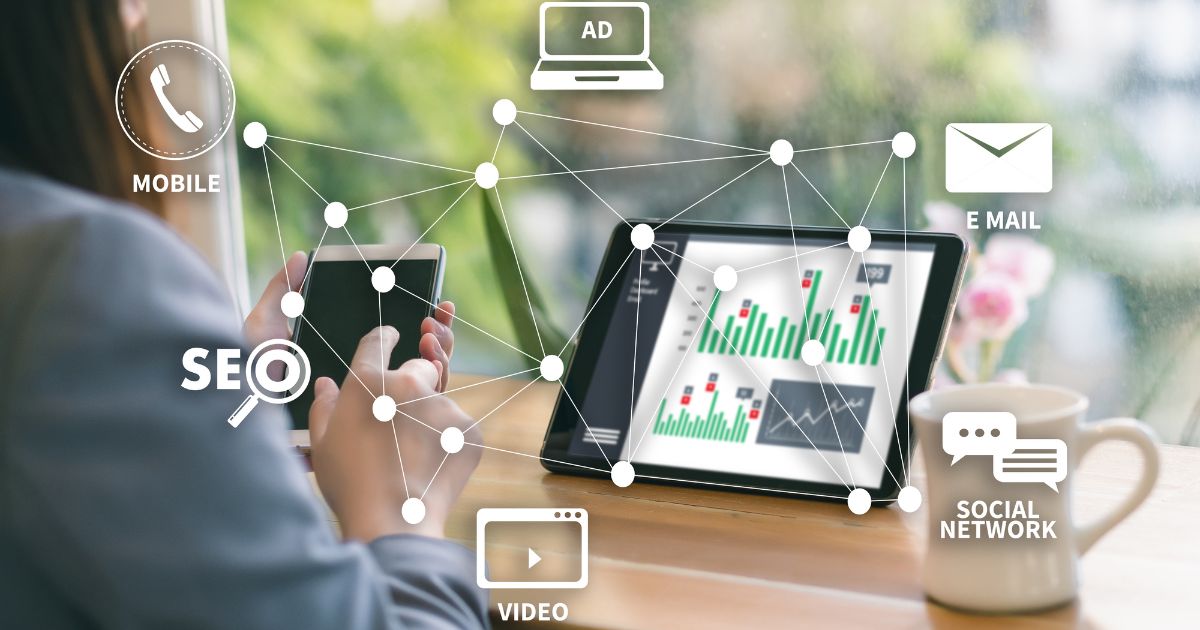As digital landscapes continue to evolve, one phenomenon that has attracted significant attention is artificial intelligence (AI). The integration of AI into digital marketing is not just a fleeting trend; it’s reshaping the industry, paving the way for more personalized and efficient marketing strategies. This article delves into the future of AI in digital marketing, exploring how this transformative technology is set to influence marketing practices in the coming years.
Understanding AI in Digital Marketing:
AI refers to machines or computer programs that mimic human intelligence, learning from experience, and making decisions based on data. In digital marketing, AI can analyze consumer behavior, identify patterns and insights, and automate tasks, thus enabling marketers to provide more personalized experiences to consumers and improve overall marketing efficiency.
The Impact of AI on Digital Marketing:
1. Personalization and Customer Experience:
One of the significant ways AI is transforming digital marketing is through hyper-personalization. AI systems can analyze vast amounts of customer data, identify patterns, and generate insights about customer behavior. This allows marketers to deliver personalized content, offers, and recommendations, thereby enhancing customer experience and loyalty.
2. Chatbots and Customer Service:
AI-powered chatbots are revolutionizing customer service in digital marketing. These virtual assistants can interact with customers in real-time, handle queries, provide information, and even guide customers through the buying process, thereby improving customer engagement and satisfaction.
3. Predictive Analysis and Decision-Making:
AI can analyze historical data and use it to make accurate predictions about future customer behavior, market trends, and campaign performance. This predictive analysis can aid in decision-making, helping marketers to strategize effectively and maximize ROI.
The Future of AI in Digital Marketing:
Looking ahead, here’s how AI is set to further influence the future of digital marketing:
1. Voice Search and SEO:
With the rise of virtual assistants like Alexa, Siri, and Google Assistant, voice search is becoming increasingly prevalent. AI will play a pivotal role in optimizing content for voice search, which is set to redefine SEO strategies.
2. AI and Augmented Reality (AR):
Combining AI with AR can create immersive shopping experiences for customers. For instance, AI could help customers virtually try on clothes or view furniture in their homes before making a purchase, thus driving engagement and conversions.
3. Advanced Content Generation:
AI is set to revolutionize content marketing by automating content generation. While human creativity is irreplaceable, AI can generate basic content, freeing up time for marketers to focus on strategy and creative development.
4. Sentiment Analysis:
AI can analyze social media posts, comments, and reviews to determine customer sentiment towards a brand or product. This can help marketers understand customer opinions and adjust their strategies accordingly.
Conclusion
As we navigate the future of digital marketing, it’s evident that AI is not just an add-on but an integral component of any successful digital marketing strategy. By embracing AI, marketers can gain valuable insights, improve customer experience, and optimize their strategies, setting their businesses up for success in the digital age. The future of AI in digital marketing is bright, promising an era of unprecedented growth and innovation.



